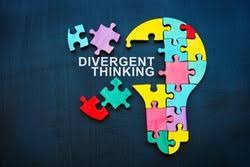Unlocking Literacy: The Power of the Merriam-Webster Collegiate Dictionary 11th Edition for Older Students
In the digital age, the Merriam-Webster Collegiate Dictionary 11th Edition remains a valuable resource for students. While younger students often benefit from foundational phonics instruction, older students—particularly those in high school—can enhance their literacy skills through effective use of this comprehensive dictionary.
The Importance of Phonemic Awareness for Older Students
Phonemic awareness, the ability to hear, identify, and manipulate phonemes, is crucial for reading proficiency. For older students, this skill is essential not only for reading but also for mastering complex vocabulary and accurate pronunciation, both critical for academic success. Many older students, especially those who struggle with reading or are non-native English speakers, may find themselves at a disadvantage without strong phonemic awareness.
Leveraging Pronunciation Symbols in the Merriam-Webster Collegiate Dictionary
The Merriam-Webster Collegiate Dictionary 11th Edition offers a detailed guide to pronunciation through its use of pronunciation symbols. These symbols serve as an invaluable tool for older students, enabling them to:
- Decode Complex Words: With clear phonetic transcriptions, students can accurately pronounce unfamiliar words, enhancing their reading fluency.
- Expand Vocabulary: By understanding and correctly pronouncing new words, students are more likely to incorporate them into their active vocabulary.
- Improve Spelling and Writing: Phonetic awareness aids in spelling, a crucial skill for essay writing and academic tasks.
The Value of a Research Study
Conducting a research study on the effectiveness of dictionary skills, particularly focusing on the use of pronunciation symbols in the Merriam-Webster Collegiate Dictionary 11th Edition, could provide critical insights. Such a study would:
- Identify Learning Gaps: Highlight areas where older students need additional support in phonemic awareness and pronunciation.
- Enhance Teaching Strategies: Provide evidence-based approaches for integrating dictionary use into secondary and higher education curricula.
- Support Struggling Readers: Develop targeted interventions to assist students who are lagging in literacy skills, helping them catch up and succeed academically.
Practical Applications for Educators
Educators can leverage the Merriam-Webster Collegiate Dictionary 11th Edition in various ways to support older students:
- Regular Dictionary Use: Incorporate dictionary exercises into daily lessons, encouraging students to look up and practice pronouncing new words.
- Technology Integration: Utilize digital versions of the dictionary that offer audio pronunciations, making learning interactive and accessible.
- Independent Learning: Promote the dictionary as a tool for independent study, empowering students to take charge of their learning and improve their literacy skills.
Conclusion
The Merriam-Webster Collegiate Dictionary 11th Edition is more than just a reference book; it's a powerful tool for enhancing phonemic awareness and overall literacy. By focusing on the effective use of pronunciation symbols, educators can help older students unlock their full academic potential. Investing in research and practical applications of these dictionary skills is essential for fostering a generation of confident and capable readers.
Take care,
Shawn Anthony Robinson PhD



Comments
Post a Comment